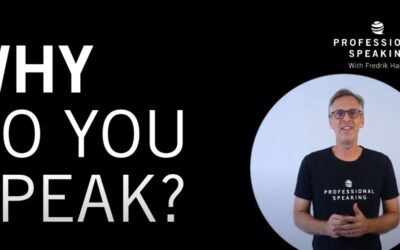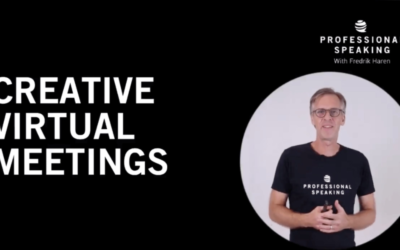
What can a singer/songwriter teach you about professional speaking? Turns out quite a lot if you let him.
Last night I found myself at the Friends Arena together with 55 000 other people who wanted to listen to Ed Sheeran. I was a spontaneous surprise from my wife (who is a big fan) and while I enjoyed the concert I could not also stop myself from making some notes afterwards about what I picked up from Ed’s performance that we as speaker can learn from.
- Warm up the audience to the idea of enjoying themselves.
If you are an artist with hard-core, concert going-fans, performing will be easy. The crowd “knows” how to “behave” but Ed’s fans are mainly “normal people” – and many of his songs are ballads that doesn’t naturally encourage you to stand up and dance, so Ed spent quite a lot of time “priming” his audience and explaining to them how they have to “dance, sing and be loud”. (Of course there are many die-hard fans at his concert, but he spent quite a lot of time talking to the non-die-hard fans, as he called them “the boyfriend” and “the super-dad”.)
In many ways Ed’s audience is – from a mindset perspective – just like the audience that you often find at a corporate speaking gig: a mix of “normal people” who is not really in the mood to “let go and enjoy themselves”.
That means that we as speakers have the same challenge as Ed: to get the audience excited to hear the performance. That means – that if we have a speech that has humor, entertainment, etc as part of our performance we need to “prime” the audience to be ready to laugh/be entertained.
If you are a stand-up comedian performing at a stand-up show the audience is already mentally primed to have fun and to laugh, but a conference audience might not be.
So make sure you structure your speech in a way that you “lead” the audience into a space where they are ready to be entertained and have fun.
2) Authentic is the new cool.
Let’s face it, Ed Sheeran is not very cool. He looks like a nerd, has a boyish smile and on stage he looks like a sound guy who suddenly got dropped on the main stage.
He is not cool, and he is doing nothing to try to “be cool”.
And the audience loves it.
Because he is authentic. You get a feeling that the way he is on stage is how he is in private.
After speaking for 20+ years I can not stress how important it is for speakers to be very much the same on stage as they are in private. The time where people want “a persona/character/performer” on stage – where the speaker is playing a role (as the guru etc) is gone. Of course there are exceptions to this, but as a rule, we are living in the age of authentic.
So watch does videos of you speaking and make sure that what they see is who you are.
3) Enjoy yourself on stage and your likability will follow.
Ed Sheeran has a silly high level of “likability”. I think a very big part of that comes from the fact that the audience can see, hear and feel that he is really enjoying himself on stage. And I think that a big reason for why you feel that as an audience member is that Ed has been able to keep the core, fundamental love for what he does and why.
He has not lost the connection back to why he started.
Sure, this concert was for 55,000 people, the stage was huge with massive animations and he makes millions and millions on this tour, but he did frequent references back to when he spoke in Sweden a few years back when there were just 200 people in the audience and standing on that huge stage all by himself, with no band or background dancers etc you could feel the connection back to why this man once started to write songs.
Why did you start speaking?
And can the audience feel the connection to what drove you to have to be on a stage and spread your message?
There you have it, 3 things I picked up on professional speaking while enjoying a concert with my wife. As speakers we can learn from many places, and almost always something from watching and listening to someone on a stage.




